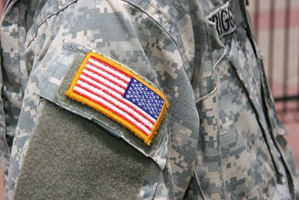Veterans in Vermont are taking part in a unique rehabilitation program, reported The Associated Press. Ex-military personnel in the state meet weekly to participate in outdoor activities sponsored by the Killington-based nonprofit organization Vermont Adaptive Ski and Sports which offers a variety of sports programs for individuals with physical and psychological disabilities. The organization hosts skiing sessions in the winter and hikes, mountain bike treks and kayaking trips in the spring and summer.
Many participants suffer from post-traumatic stress disorder and say the outings provide a relaxing respite from disturbing memories.
"It woke up a part of me," Bryan Ashley-Selleck, a Gulf War veteran, told the wire service. "Doing all these things like skiing, and kayaking and fly-fishing, it takes me back to like being a kid again. It stops all the thoughts and you're mindful and it feels good."
The National Center for PTSD encourages those dealing with the disorder to develop an exercise regime and, through the Department of Veterans Affairs, offers nationwide sports therapy programs. Additionally, the VA in December granted $376,000 to Disabled Sports USA's Warfighter Sports program. DSUSA serves over 300,000 veterans in 20 states.
Benefits seen from nerve-wracking yet controlled situations
State agencies and third-party organizations sponsor similar programs in cities across the country. The city of Albuquerque, New Mexico in December launched Warrior Sports, a year-round program that hosts athletic outings for local veterans, reported the Albuquerque Journal.
Todd Vance, an Iraq War veteran, runs a mixed martial arts organization for former military personnel, reported an NBC affiliate in San Diego. The company, called Pugilistic Offensive Warrior Mixed Martial Arts, helps veterans deal with PTSD and other conditions through vigorous combat training. Vance says putting ex-military personnel in nerve-wracking yet controlled situations helps them re-establish control over their emotions. In short, if they can take a punch in the ring and calmly conceive an effective counter move, they can handle everyday situations.
"You have to cognitively make decisions while you're extremely stressed out," he told NPR. "I think that transfers directly over to, 'I'm at the stop light, why is that guy staring at me?' I'm going to stop, take a breath, calm down, assess the situation, as opposed to, 'I'm stressed, I react, and now I'm in jail.' It teaches everybody to slow down, take a breath and take things from there."

